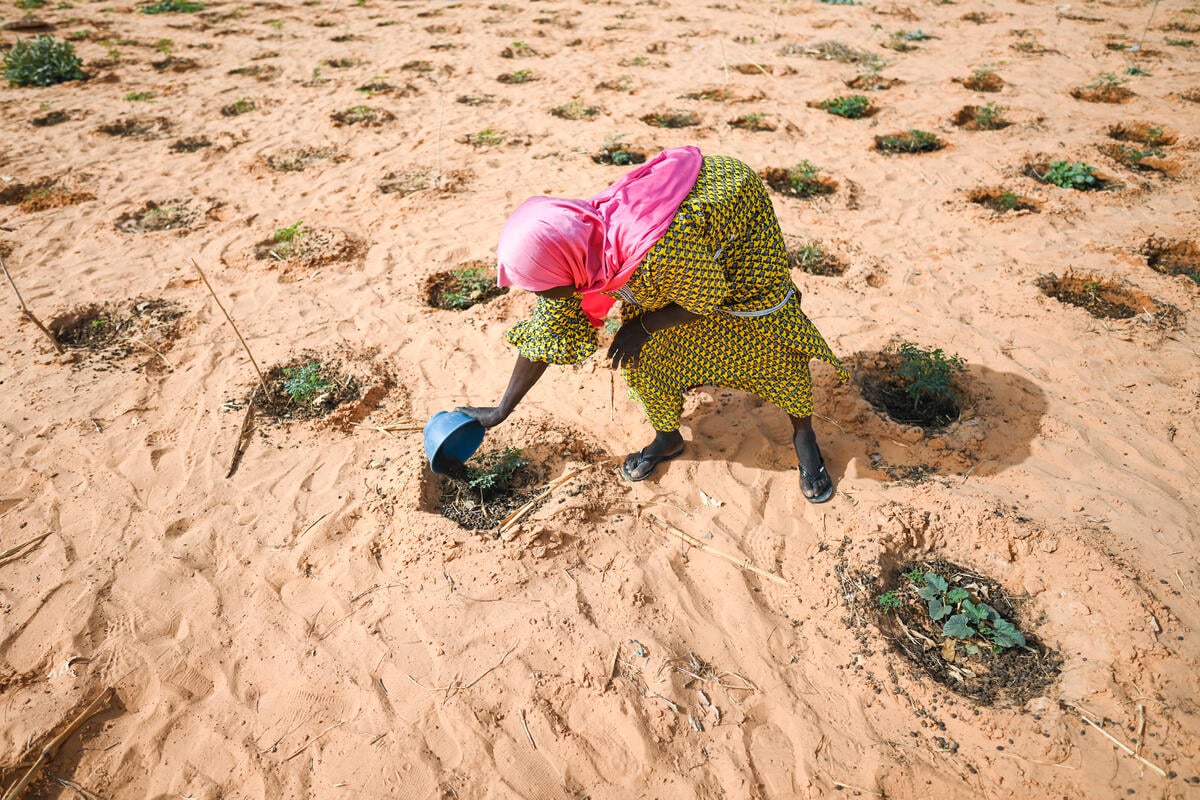Nearby fighting mars opening of UNHCR field office in North Kivu
Nearby fighting mars opening of UNHCR field office in North Kivu

GOMA, Democratic Republic of the Congo, November 22 (UNHCR) - The UN refugee agency has opened a new field office in Rutshuru, a district capital swamped by displaced Congolese in the volatile province of North Kivu.
But the opening of the bureau on Wednesday was marred by a fresh outbreak of fighting close to the centre of Rutshuru town that forced thousands of people to flee their homes in search of safety. The conflict set back plans to launch new camp management and coordination operations in the area.
UNHCR is the first UN agency to establish a permanent presence in Rutshuru and the two national field staff in the new office will oversee assistance and protection operations for the estimated 45,000 internally displaced people (IDPs) in the Rutshuru area. About half of them live in five camps while the rest stay in community buildings or with family and friends.
"It has been difficult to operate from Goma and provide regular assistance and protection to the IDPs in Rutshuru," Masako Yonekawa, head of the UNHCR office in the provincial capital Goma, which is located some 70 kilometres to the south of Rutshuru.
Yonekawa said the fighting Wednesday would delay the launch of a UNHCR operation to move some 2,000 displaced people from several schools and a local stadium to the new Dumez site developed by the refugee agency in consultation with the local authorities in Rutshuru.
This group fled their villages in October to escape fighting between government forces and renegade troops. Many sleep in classrooms, which they must vacate in the morning when pupils arrive for their lessons. Yonekawa said the transfer to Dumez "will relieve IDPs from the stress of having to move out of their temporary shelters on a daily basis and normalize community life."
Tens of thousands of people have been displaced by the fighting in North Kivu in recent weeks. Many of the IDPs are living in precarious conditions without regular humanitarian assistance, including food, health care, clothing, potable water and shelter materials such as plastic sheeting and blankets.
Recent UNHCR assessment missions to Rutshuru have voiced concern over the proximity of IDP sites to military bases, which they say could expose females to the risk of sexual abuse.
"One of the most pressing tasks is to look into the possible transfer of IDPs from Nyongera site, which is close to an army unit," said Barbara Colzi, a UNHCR protection officer, adding that they hope to move the displaced to a safer site half-a-kilometre away.
Germaine Bationo, head of UNHCR's emergency team in North Kivu, said there were other obstacles to aid and protection operations, noting that some of the IDP sites are in rebel-controlled areas. "This will seriously restrict our movements and will require the use of military escorts from the UN peace-keeping mission," she added.
She singled out the Kyniandyi I/II and Ngwenda camps located some 10-15 kilometres from Rutshuru town. IDPs at Ngwenda told members of an assessment team that some of the displaced had opted to return home to an uncertain future rather than face certain death from hunger if they stayed.
The build-up of military forces and repeated clashes in North Kivu since December 2006 have led to the worst internal displacement in the area since the end of the civil war in 2003. Some 375,000 Congolese have been forced to leave their homes in the province since last December, including more than 160,000 in the last two months alone. There are some 800,000 IDPs in the province.
UNHCR is urging all parties to refrain from attacks on internally displaced people and civilians, and to find a negotiated solution for the prolonged violence that continues to plague North Kivu and its population.
By Niels Stassyns in Goma
Democratic Republic of the Congo








